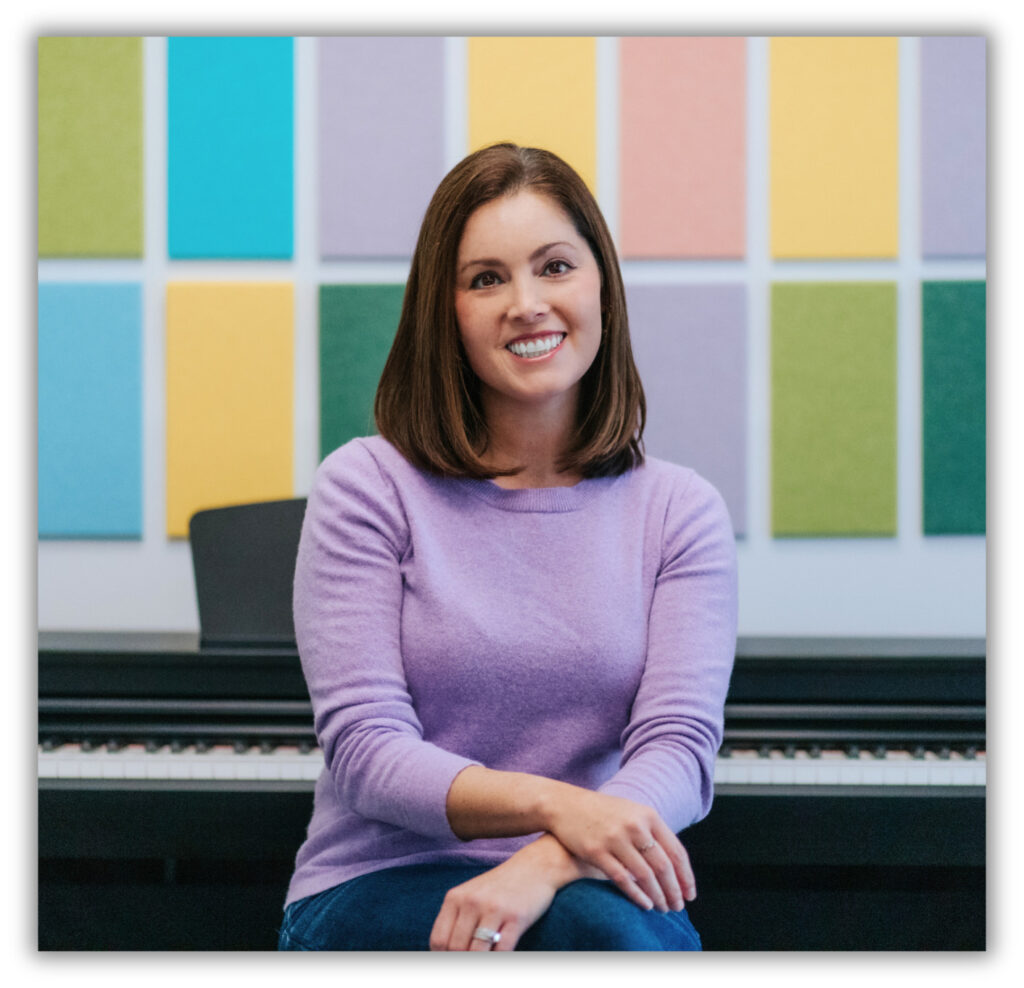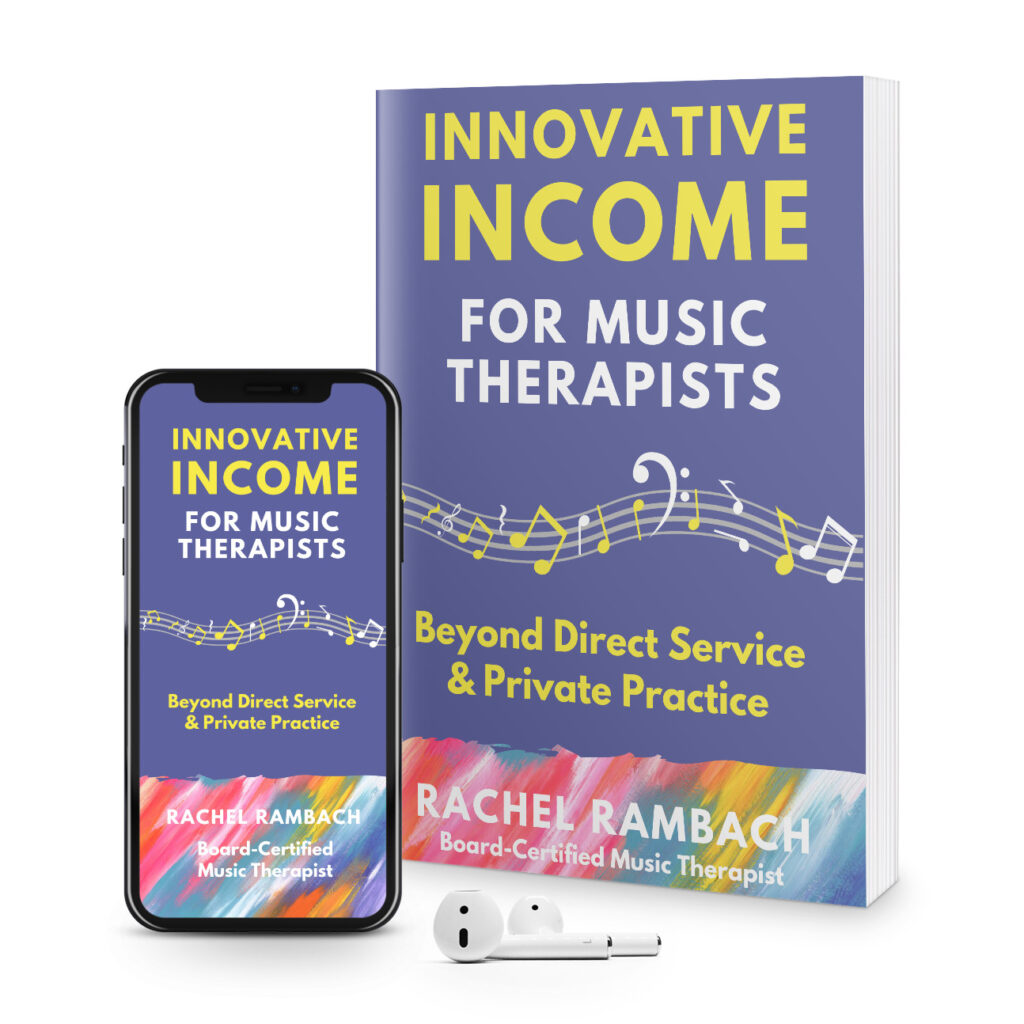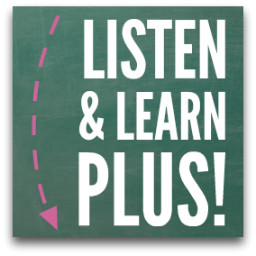by Rachel | Personal Development, Professional Development

The older I get, the faster the years go…so it makes sense that 2022 flew by in a blink. In comparison with previous years, this was a really, really good one, though it was not without its challenges. My word for the year was PERSEVERE, which I chose with the intention to “just keep going” no matter what curveballs came my way. As has been my practice for the past several years, I didn’t set any big, lofty goals; rather, I wanted to focus on living my word without any extra stress (because my regular daily life brings more than enough of that!).
(more…)
by Rachel | Uncategorized

It’s the 3rd Tuesday of the month, and that means it is time for another episode of the Music Therapy Round Table podcast! This month we’re talking about professional development.
Check out what Kimberly, Michelle and I have to say on this topic — including our own personal definitions of professional development, what we count towards it, and our professional development goals down the road.
This particular episode comes at a good time, since another school year is beginning which always brings new challenges. I know that personally, I have lots of exciting changes and challenges ahead and need all the professional development I can get! Luckily there are many methods and resources from which to do so, as we discuss in the episode.
What have you done lately to further your own professional development?
by Rachel | Uncategorized

Yesterday I had the opportunity to talk to a classroom full of college students about my approach to personal branding. The instructor just happens to be the mother of one of my piano students, so she has seen first-hand how I’ve built my own personal brand over the last couple of years, both online and locally.
I was a new professional, fresh out of graduate school, when I began building my personal brand. I was afraid of getting lost in the sea of music therapists, and wanted to make a name for myself as I started my career.
First came Listen & Learn, where I established a presence and voice in the online world. Soon after, I started a Facebook page so that I could further connect with people interested in my work, my blog, and me in general — in other words, my personal brand. I joined Twitter for the same purpose.
While I was working hard to spread my message online, I was simultaneously doing so in my community. Presenting at conferences and workshops, performing at various local venues, and being featured in newspaper articles were all ways to make my brand known.
And while I didn’t have a specific strategy at the time, as I look back, I realize that I followed a pretty simple set of self-written rules:
- It’s never too early to begin building your personal brand. No matter how young or inexperienced you are, just get started. Your brand will grow as you do.
- Be genuine in everything you write or post. When people meet you in person, you should come across the same as you do online.
- Be consistent. Use the same profile picture and style across platforms.
- Be transparent. Don’t inflate your credentials, your numbers, or your network; just show your true colors and eventually all of those things will inflate on their own.
- On the flip side, don’t give yourself too little credit. If you underestimate your abilities and potential to be an authority in your niche, others will do the same.
Even though I still have a long way to go, I feel like I’ve been pretty successful in my efforts within a relatively short period of time. So based on that success, here are the six things that, in my opinion, are essential to every personal brand:
- A goal. What are you working towards? Where do you want to be a year, 5 years, 10 years from now?
- A resume. Always have this on hand and ready to share, and always be adding to it. Every experience counts.
- A website. Even better, a blog. Create dynamic content so that people have a reason to keep coming back.
- A slogan that people will remember. Mine is “helping children learn and grow through music” — which sums up all of the different kinds of work I do.
- Social media presence. Facebook, LinkedIn, Twitter, YouTube…the more platforms for people to find you, the better.
- Business cards. I use VistaPrint to create custom cards that reflect my brand’s aesthetic and message.
Whether or not they realize it, most people are building their personal brand on a daily basis. What are you doing to set yourself apart from everyone else?
by Rachel | Uncategorized

Each morning as I decide what to wear, a few thoughts go through my head: what’s the weather like? Do I have any floor groups today? Am I going to be lugging instruments and equipment around?
As a music therapist, my job duties and work environment changes on a daily basis depending on which clients I’m seeing and in which setting I’ll be seeing them. I spend most days in multiple settings, going straight from my job at a school (where I need to adhere to a certain dress code) to my private practice (where I can keep my outfit a little more casual). So the key is finding a good balance.
There is a list of rules I follow during the school year that make getting dressed a little easier, no matter what I’ll be doing on any given day. Here are some things I stay away from:
- open-toed shoes
- uncomfortable heels
- short skirts
- shirts that are too short
- pants that are too low
- sleeves that don’t let me lift my arms easily
- overstated jewelry
In other words, I pretty much stick to the basics. My wardrobe feels pretty boring at times, but it’s better than being uncomfortable!
In the summer I can be a little more lax, since I work mainly in my home studio and don’t have to do any hauling or walking around. I still need to look professional enough, but I want my students and parents (who most often are dressed down during the warmer months) to feel comfortable and “at home” in my studio.
There’s so much more you have to take into consideration when you spend your days with children. What rules — whether your own or a strict dress code — do you follow when you get dressed for work?







